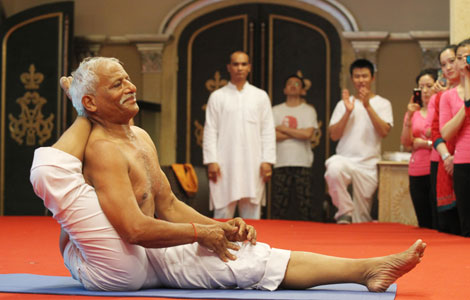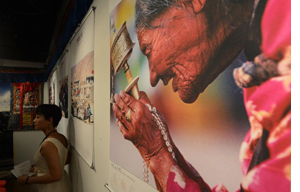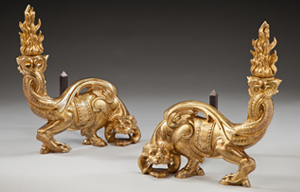

Temur, a Hohhot-native Khoomei vocalist who launched the school in 2011, says there are two other teachers from Mongolia maintaining regular curriculums based on students' levels. But Od Suren provides all students with a solid foundation.
"Basic skills won't take too long for someone who wants to become professional," Temur says.
"Ethnic music's essentials must be upgraded. Then the rest can follow."
Hohhot held Inner Mongolia's first Khoomei contest in 2011. But the event was eventually suspended for lack of sponsorship.
Temur says the Xilin Gol League stages the only Khoomei contest. He hopes to get more areas involved in promoting the folk art.
He is glad more than 200 students have attended the school in the past two years.
"It's important Khoomei gains popular appeal, but we also expect to nurture masters here," he explains.
He takes hope in newcomers such as Namla. The 22-year-old recently graduated as a film major. But rather than look for a job, she became one of two female students in his class.
"I want to grasp these unique skills before I consider something more practical," she says.
"My career will be easier if I can sing Khoomei," she says.
"But for now it costs money and time. I've yet to see the return."
It's more difficult for women than men to perform the singing style because of the differences in their vocal cord.
Female performers were virtually unheard of in old times. But Od Suren has brought several into the tradition.
"It will be tougher for me," Namla says.
"But I could be the next star."
| Checkmate, Mongolian style | Grass is greener at home |



